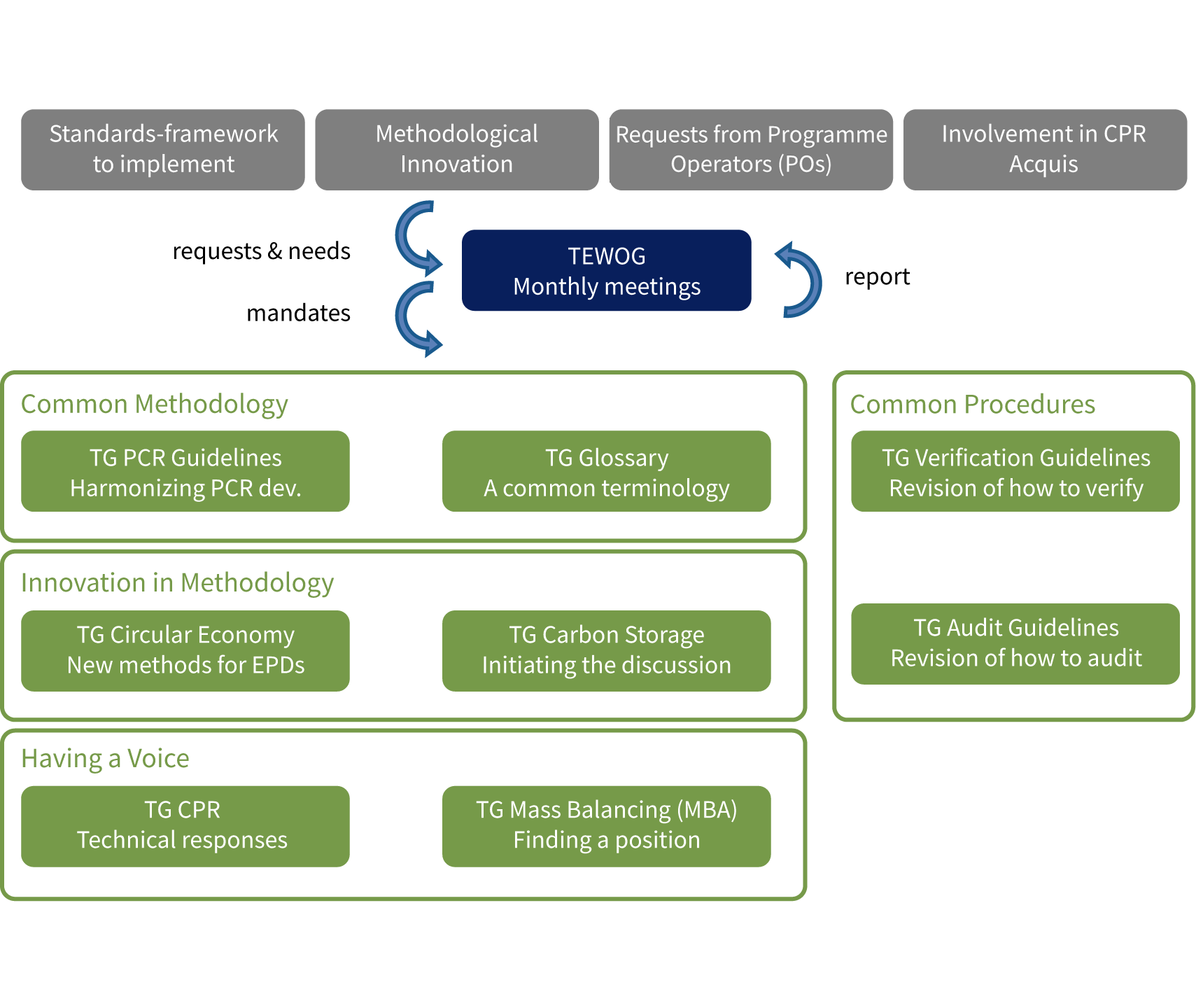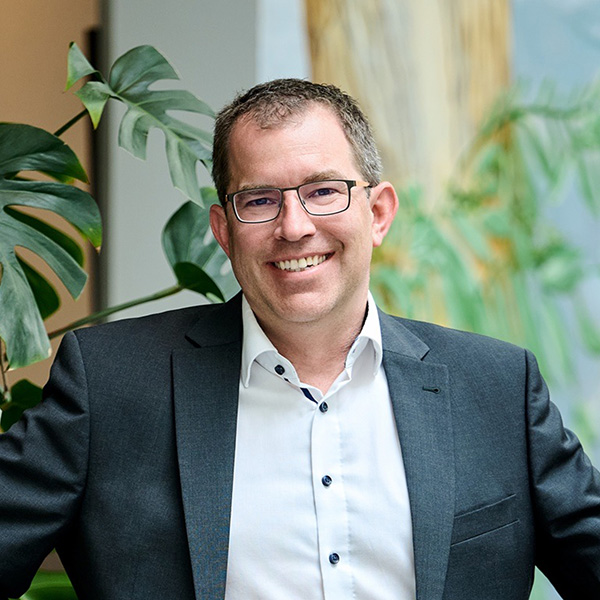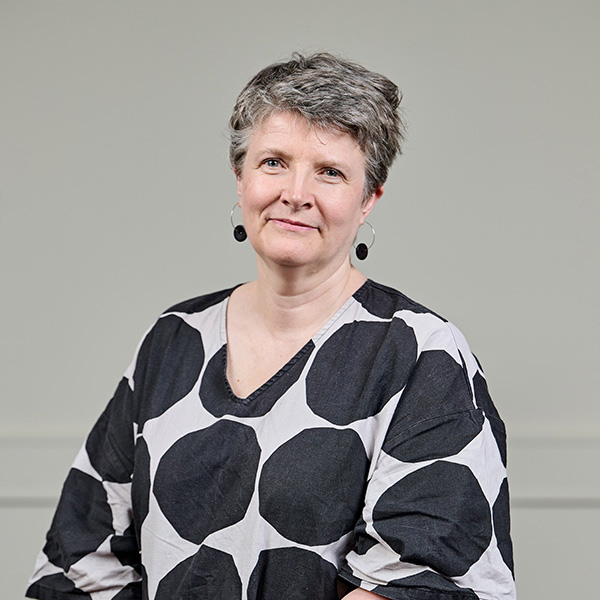Our Technical Working Group
TEWOG
Framework conditions

Harmonizing the development of PCRs (TG PCR Guidelines)
- Finding a mechanism how to govern collaboration regarding PCRs, facilitating joint PCR developments
- Defining additional minimum requirements for PCRs (in addition to the existing framework from standards)
Defining terminology and rules for classifying EPDs (TG Glossary)
- How do we differentiate types of EPDs?
- How do we define if an EPD is an EPD in the view of ECO Platform in “grey” cases?
- Examples: manufacturing-site specific EPDs? Project-specific EPDs that are treated differently by POs
Revising the Verification Guidelines (TG Verification Guidelines)
- Core document of ECO Platform – mandatory for all POs
- Needs to be updated to current situation, incl. tool verification
- Separation of calculation rules from guidelines for verification
Revising Audit Guidelines (TG Audit Guidelines)
- Transfer of rules for auditing of POs by ECO Platform into separate document
- Securing “quality of ECO Platform membership” for POs through sharp guidelines for impactful audits
- Updating guidelines for auditing for practical applicability
New Indicator(s) for Circularity in EPDs (TG Circular Economy)
- Initiative to pick up previous work from some POs
- Aims at providing a feasible proposal for adding a circularity indicator to EPDs
- Target is to feed findings into the standardization process
- Initial proposal was tested, need to propose & discuss modifications in methodology now
New ways to deal with carbon in EPDs (TG Carbon Storage)
- New group, initiated by requests from different POs + reacting to DG GROW’s request for an opinion on temporary storage of biogenic carbon, to discuss methods that are outside the standards today:
- How to account for (fossil) Carbon Capture & Storage / Utilization in EPDs?
- How to account for temporary storage of biogenic carbon in renewable building products in EPDs?
Contributing to the CPR Tech. Acquis Process (TG CPR)
- ECO Platform is in a unique position to inform the regulatory process
- ECO Platform has been asked to provide a position / technical proposal for how to deal with certain aspects
- Task Group supports nominated experts & is platform to develop a common understanding & opinion for communication
Finding an agreed position on Mass Balancing Attribution Methods (TG Mass Balancing)
- Understanding if there is a framework possible that can allow ECO Platform to accept & utilize MBA methods
- Defining requirements for such a framework with the aim to contribute to discussions initiated by the European Commission (incl. CPR Acquis process)
TEWOG – What’s in it for me?
What TEWOG is doing, has an impact...
- On you as a Program Operator, regarding your processes, your methodology definitions and rules and your participation in ECO Platform
- On you as an EPD Owner and EPD Practitioner, especially when working internationally and for staying ahead of the market
- For you to understand new developments in methodology and regulatory (and normative) changes and how they are implemented in ECO Platform
And recently, TEWOG was successful with...
- Merging the rules for PEPecopassport with rules for building product EPDs and formed the basis for a common approach for EEE products incl. use of ECO logo
- Updating the verification guidelines – which must be implemented by all POs
- Agreeing on how to account for green electricity and biogas in EPDs
- Informing DG GROW on how we verify, how we deal with green electricity etc.
TEWOG – What will I gain from joining TEWOG?
Only if you contribute, you can…
- Get the information first-hand, including topics that may be very relevant for your organisation or you as a Program Operator
- Understand and prepare for what is coming to the world of EPDs through the CPR Acquis and the CPR Revision
- Voice your opinion and concerns on new developments
- Help shaping the rules for the development of EPDs and for the operations of all ECO Platform Program Operators

TEWOG CONVENOR
Dr. Bastian Wittstock

TEWOG CO-CONVENOR
Dr. Jane Anderson
